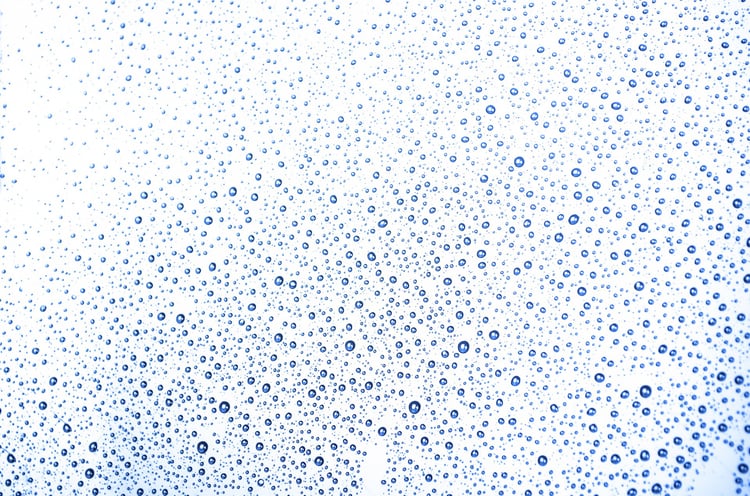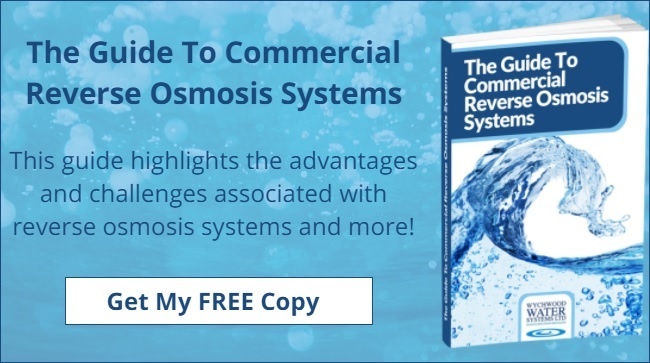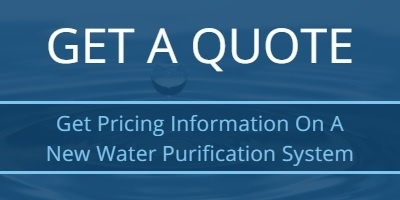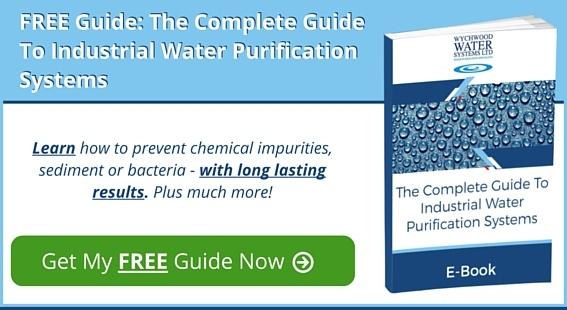
Industrial water deionisation can be an excellent alernative to reverse osmosis. The deionisation process can be accomplished in two ways: via the use of charged resin beds, and by using electrical charges.
Deionisation Using Resins
Conventional deionisation (DI) involves the use of chemically-charged resins. These resins reside either in separate chambers, or together in what is known as mixed-bed format. Regardless of the format used, water is treated in the same way; it is passed through a cation resin, where all cations in the water are removed. Then, the water passes through an anion resin, which removes all the water’s anions.
Depending on your industry, this type of deionisation may or may not be suitable. For example, if you produce products for the pharmaceutical industry, traditional deionisation would not be suitable. This is because the anion and cation resins used must be regenerated from time to time to ensure continued water purity, which requires the use of caustic soda and hydrochloric acid. These chemicals prevent the required purity level from being achieved.
Deionisation Using An Electrical Charge
Facilities requiring high water purity will benefit far more from the continuous deionisation process (CEDI). This process also attracts anions and cations through positive and negative charges. However, it does this via electricity as opposed to chemically-charged resins. Membrane-encased anodes and cathodes are placed into the water and impurities removed. In addition to offering chemical-free purification of water, CEDI also allows for regeneration to occur without the need for chemicals.
It is likely that water will need to be pre-treated with reverse osmosis (RO) if the complete removal of bacteria is required.
Common Problems With Conventional DI Systems
Feed water quality is a concern with traditional DI systems, as if bacteria can enter, a system-wide shut down and disinfection may become necessary. The movement of water is also important in these systems, as low flow rates can create areas of bacterial growth.
The system must be monitored constantly to ensure that water purity levels are consistent. Although this is already done via on-board systems, these systems need to be properly calibrated.
The proper regeneration of resins is crucial to continued water purity levels. Batch regeneration involves regenerating both anion and cation resins at the same time and in the same container. However, should one or more resins already be contaminated before regeneration begins, the integrity of the entire batch can become compromised.
The sensitivity of resins used in conventional DI also need to be considered. Most resins will not be able to handle water containing iron, chloramine or chlorine, as these chemicals will break down resin material.
Problems With CEDI Systems
As stated previously, pre-treatment of the feed water is necessary to ensure your facility’s manufacturing water is at a high enough level of purity. This is most commonly accomplished via reverse osmosis, a system that can take time to set up if not already installed. As well, passing feed water through this treatment procedure requires time. RO systems can be expensive to purchase. Also, staff will need to be trained to test the water should an in-house solution be chosen.
Choosing The Right System For Your Facility
The best way to choose the right system for your facility is to consider what you produce. This will tell you whether ultra-pure water is needed or not. If you manufacture food, beverages, cosmetics, medical or pharmaceutical products, a continuous electronic deionisation system is likely to be your best option.
To be sure you are making the best decision for your facility, it is sometimes advisable to seek the advice of a knowledgeable water purification professional, such as one of our team at Wychwood Water.
Free Assistance For Your DI Decision Is Available Now
Our team of experts understand that an informed decision can make all the difference to your facility. To ensure you’re choosing the correct system, we’ve written our Guide to Deionised Water Treatment Systems, as a free resource you can download from our website. The eBook is packed with all the information you need to decide whether your facility is better suited to conventional DI, or requires water purity that only CEDI can provide.
We’re also happy to discuss your options with you directly; simply send your enquiry to sales@wychwood-water.com.










 We are a specialist independent company involved in water purification and water treatment technologies
We are a specialist independent company involved in water purification and water treatment technologies


